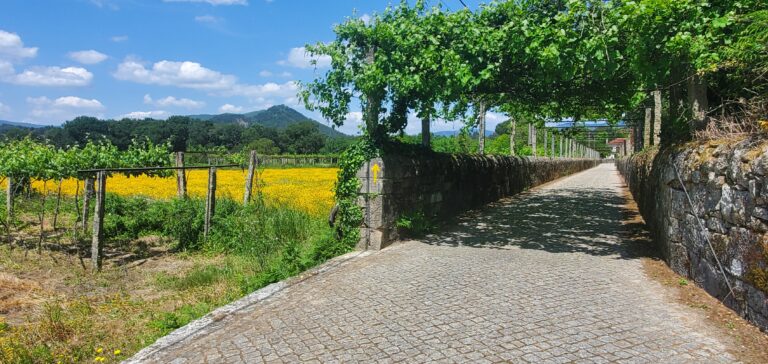It was my fifth time in Nigeria. The electricity was out, as usual. A water heater had been installed, but its reliance on electricity made the availability of a hot shower unpredictable. Fortunately, in July there were plenty of monsoons to fill up the water tanks, so most of the time I could at least get some from the sink. Of course, the heavy rain on the tin classroom roofs was sometimes too loud for students to hear a word I said. Internet had not been functional enough to download a single document for the past week, making lesson planning for the graduate course I was teaching slightly more limited. But none of this was atypical; in Kagoro, Nigeria, such challenges were simply part of life. Many students came from places where life was much harder: food was scarce, the Boko Haram had burned down their church multiple times, the roads had been washed out from the rain, and curfews kept people fearfully inside after dark. Being on the seminary campus, even living in their tiny dorm rooms with short nights because of their heavy workloads, was a privilege and a blessing.
usual. A water heater had been installed, but its reliance on electricity made the availability of a hot shower unpredictable. Fortunately, in July there were plenty of monsoons to fill up the water tanks, so most of the time I could at least get some from the sink. Of course, the heavy rain on the tin classroom roofs was sometimes too loud for students to hear a word I said. Internet had not been functional enough to download a single document for the past week, making lesson planning for the graduate course I was teaching slightly more limited. But none of this was atypical; in Kagoro, Nigeria, such challenges were simply part of life. Many students came from places where life was much harder: food was scarce, the Boko Haram had burned down their church multiple times, the roads had been washed out from the rain, and curfews kept people fearfully inside after dark. Being on the seminary campus, even living in their tiny dorm rooms with short nights because of their heavy workloads, was a privilege and a blessing.
Every time I visited Nigeria my appreciation for the small things was refreshed. Returning to the US some of the “superficial” complaints irked me. So what if your new iPhone took 10 seconds longer than the last one to download a photo? You have the internet at your fingertips! But let’s be real. I easily slipped back into basing my satisfaction for products or services on the norms around me. Soon I too was annoyed when I had bad reception in my preferred areas of the house.
First World Problems
When was the last time you said or heard someone else say, “I hate it when…”?
“I hate it when there’s nowhere to charge my phone.”
“I hate it when the internet is this slow.”
“I hate it when they put you on hold.”
“I hate it when there are too many options to choose from.”
“I hate it when my fridge is so full I can’t fit anything else in it.”
Perhaps it’s not always stated so strongly, but I know I slip into complaining (internally or vocally) about “first world problems.” This short video helps provide some perspective:
https://www.youtube.com/watch?v=LDLqafWub_o
It’s easy to forget that the many resources we have are privileges, not rights; they are blessings, not entitlements.
When “Hating” is Just Complaining
If I look at things from a more global perspective, my grumbles should be re-evaluated. How do our annoyances compare to our blessings? How often do we take time to say, “I’m so grateful for…”?
I’m so grateful for the important people in my life.
I’m so grateful for having food, water, a place to sleep.
I’m so grateful for having the freedom to be creative and express my ideas.
I’m so grateful for the education I have and the ongoing chances to learn more.
I’m so grateful for means of communication, both through technology and “real” conversations.
Think about your own thoughts and words. How often do you express thankfulness? If it is less often than expressing complaints, it’s time for a shift in outlook. This shift requires some level of intentionality, especially during those seasons of life when the negative circumstances seem to outweigh the positive. There are indeed seasons: times of blossoming, growth, and harvest, but also the dreary winters, with limited sunlight and barren trees. Yet there are some trees and plants that require the full cycle, including winter frost to bloom again in the spring.
Right now I feel like I am in springtime. I still consider myself a “newlywed” and find it easy to be grateful as soon as I stop to count my blessings. I still need to take that time to count those blessings and respond in humble gratitude, thanking God and expressing appreciation to others. Both actions are beneficial in my relationships with God, my husband, and others. They are uplifting to my own heart. If I make it a habit to be grateful now, it will flow more naturally into the times of more discomfort.
I’ve also gone through those periods of struggle, questioning, and a bleak-looking horizon. The years of medical struggles (dealing with a brain tumor) were painful in more ways than one, but they were also periods of learning dependence on God to a far deeper level. In retrospect I am grateful for the ways God worked on my heart during the barren season. I honestly don’t know how I would’ve made it without God’s grace in my areas of weakness. My reasons for gratitude were not the same as the “sunny” season, but they were present when I sought the Presence of Jesus.
The Thanksgiving Challenge
Thanksgiving Day is a great reminder to stop and give thanks. But gratefulness should never be limited to that day. This year it falls 40 days before the arrival of the new year. My challenge to you is to start a list of reasons to be thankful, then take it one step farther. Each day write down a reason to be grateful, then find a way to express that gratefulness. If you are grateful for a significant person in your life, send a text expressing your appreciation. If you appreciate some form of nature, set aside 15 minutes to enjoy that nature. If you are thankful for a certain passage in Scripture, write it out on a sticky note and put it on your mirror. Get creative!
Be sure to pass on the challenge to your friends and share the results!







Wonderful message, Emily! I’m inspired toward more gratitude and less complaining. What a contrast between 1st world “problems” and those of the majority world! We are indeed so incredibly blessed in so many ways! Thank you for reminding us! I intend to join the 40 day challenge, and maybe even extend it into 2019! Love you!